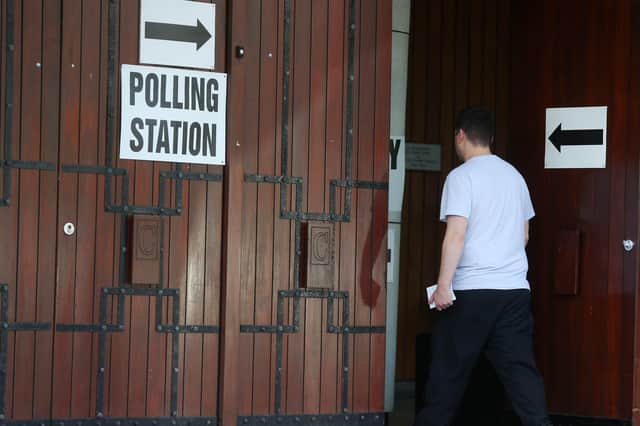Northern Ireland elections fail to comply with best international standards


It is at least a pity that our elections still fail to comply with many international standards; (cf. my article in Fortnight, 2005/436).
In principle:
1 all political campaigning should cease, ideally at least 24 hours before polling day. NI campaigning continues, even on polling day — see items 3 and 4.
Advertisement
Hide AdAdvertisement
Hide Ad2 polling station precincts, up to 50/100m, should be neutral. Ours are often festooned with posters etc..
3 polling day itself should also be neutral. Here, however, polling station entrances are often crowded by activists, and many voters have ‘to run a gauntlet’ to get inside to vote. Furthermore, some voters are given ‘instructions’, some to vote ‘candidates X 1, Y 2’, others to choose ‘candidates Y 1, X 2’. (Thus, by treating the voters as ballot fodder, some parties try to ensure their candidates get roughly the same 1st preference scores.)
4 worst of all, inside the polling station, party agents should not be able to record the voters’ individual identities. Alas, they can; this is horrible but legal, and often facilitated by the polling station staff. (Would we want Putin to know who has and who has not voted in Russian elections?)
Come the evening, data on who has not (yet) voted is passed to other activists waiting outside — this is illegal and even more horrible, but it happens. The activists then drive off to round up these ‘stragglers’; in effect, the inside of the polling station is used, by some, to further their campaigns — democratic sacrilege.
Advertisement
Hide AdAdvertisement
Hide Ad5 lastly, the count should be conducted fairly. On Sep 5 2000, the late Professor Elizabeth Meehan and I met the then Minister, George Howarth MP, to complain about a certain counting inaccuracy. A subsequent meeting with the Electoral Office on Dec 5 2000 was inconclusive, while the Electoral Commission promised to hold a seminar... but didn’t. The problem lies with transfers: in theory, any elected candidate’s surplus votes, in due proportion, should either be transferred to the voters’ lower preferences, or, if some voters have not cast any subsequent preferences, be counted as non-transferables.
Sadly, there’s an anomaly in the rules: sometimes, non-transferable votes are actually transferred, without the relevant voters’ knowledge let alone consent.
For example, in the March 2007 Stormont election in one constituency only two candidates remained at the 12th stage of the count, with already 14 candidates either elected or eliminated. A surplus from one party of hundreds of votes was transferred. Now with lots of voters voting for that party ‘1-2-3’ only, an observer might have expected some of these surplus votes to be non-transferable. Nope! Of the 1,421 votes in the surplus, eight were transferred to one party and 1,413 to another. This probably led to a fake result.
Sadly, the Electoral Office and Commission still don’t want to even discuss this anomaly.
Peter Emerson, (Candidate in 15 NI elections and an accredited election observer in 20+ elections, 1996-2020, from Bosnia to Ukraine, Russia, Mongolia & Taiwan), De Borda Institute, Belfast BT14